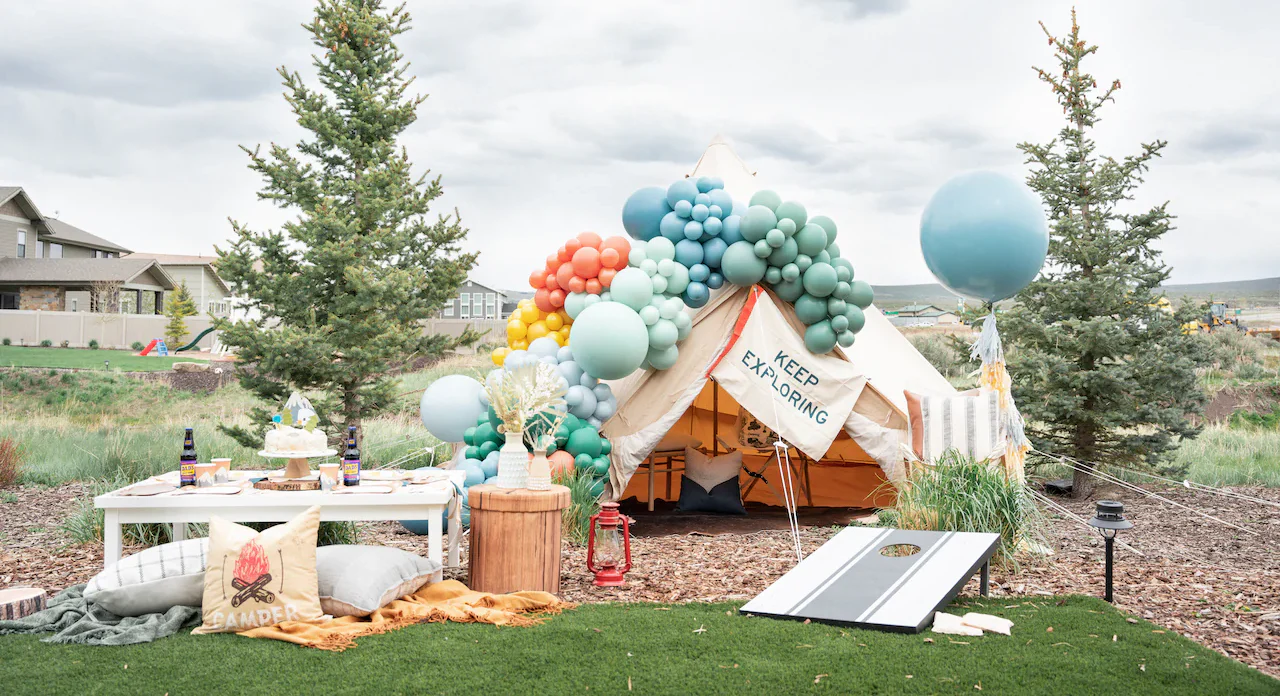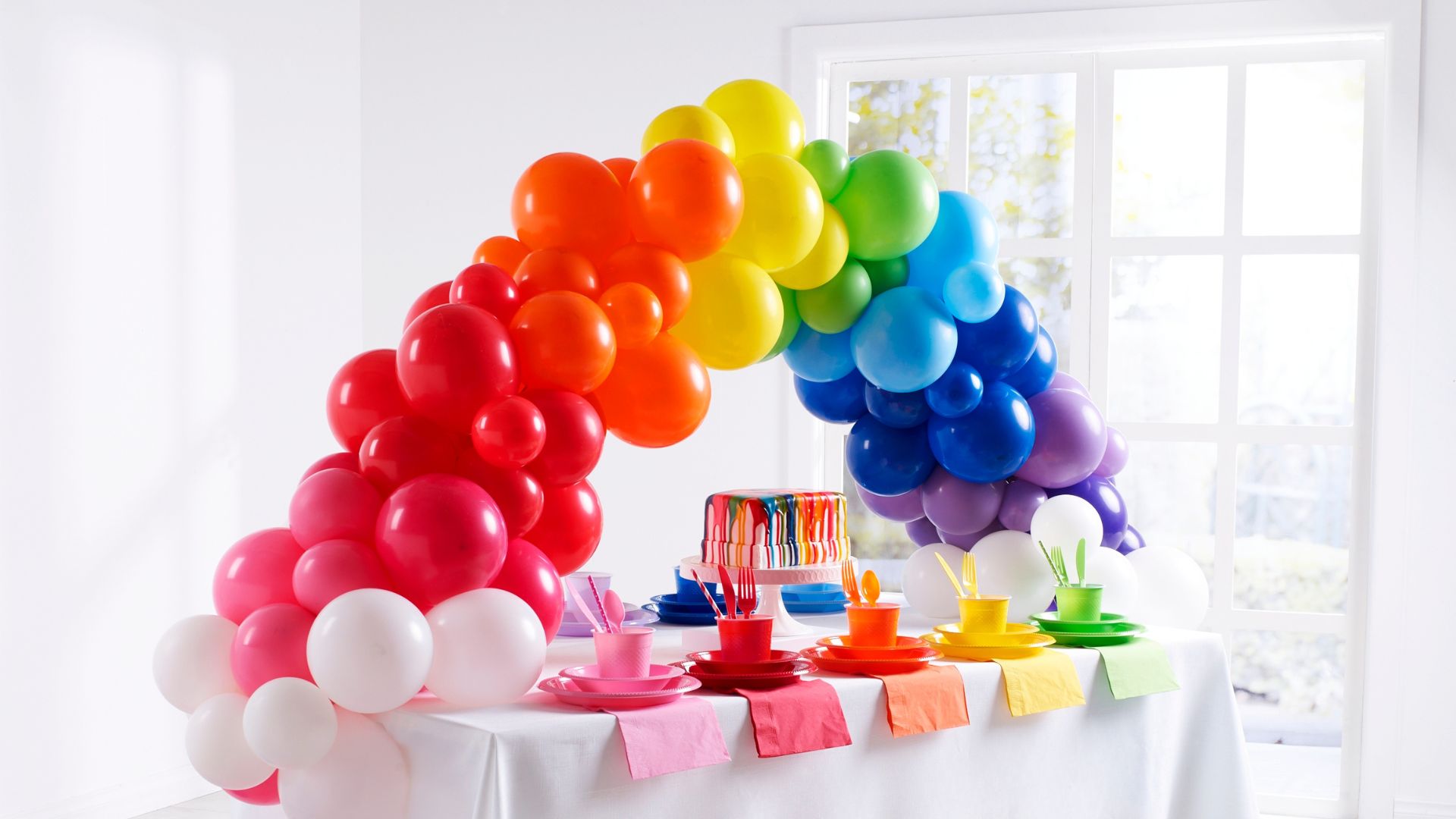The party supply industry is constantly evolving. Now party retailers have to choose between renting vs. selling party supplies, or building some form of a hybrid of both to meet the demands of today’s party hosts.
As more attention is placed on eco-friendliness and reducing waste, the demand for reusable products is growing, making renting party supplies an attractive option.
Consumers are turning away from single-use supplies, such as toss-away plates, cups and napkins. And yet, they still don’t want all the cleanup of using their own cutlery during a party.
And that’s where renting such supplies comes in. Instead of being a single transactional exchange like selling party supplies, it now involves many milestones in the relationship, such as drop-off, pickup, sanitization for the next customer and complex inventorying where you determine whether you have adequate supplies on the weekend that your customers desire.
Many customers are also looking for coordinated setups where party companies handle everything from start to finish. So renting is certainly more complex than selling products. But let’s take a deeper look at each to help you weigh the pros and cons of each on your way to managing a business structure that works for you.
Selling Party Supplies: Pros and Cons
The traditional retail model for party supplies is selling it. You can do so from online shops, storefronts or event boutiques. It’s the far more common strategy for party businesses. It can involve themed party packs, bulk discounts and no minimum ordering threshold.
Here’s a look at some of the pros of selling party supplies.
- High turnover with minimal maintenance: You sell the product and simply prepare to restock the inventory. You don’t have to worry about cleaning, storing or returning the item.
- Simple logistics: Selling party supplies doesn’t involve damage deposits, pickup and drop off coordination, product tracking and more. Selling is better for stores that have a smaller team and bandwidth.
- Access to a broader market: While renting is growing in popularity, it isn’t necessarily popular yet. The broader audience wants to buy, consume and toss party supplies because of the ease with which they can do so.
- Easy to scale online: Renting party supplies online is incredibly complex. You need a sophisticated platform to power such a business. But selling party supplies is a clear and simple e-commerce arrangement.
- Themed product flexibility: Since you aren’t buying and then renting out reusable products, it’s easier to stock trending items, such as those for dadchelor parties, a growing trend for new dads. You can’t be sure how long the trend will last, but you don’t have to worry too much because you can just stop stocking the items once demand plateaus.
While selling party supplies offers many benefits, there are cons to consider.
- Lower margins on disposable items: Disposable party supplies often carry thin margins when compared to renting goods. While you can upsell using party packs, volume can limit income.
- More inventory risk: If you stock seasonal items, you might be left to close them out at the end of the season, which can further harm your profit margins. Unsold stock can make balancing your books more challenging.
- Short product life: Once you sell the item to the customer, your transactional relationship is over. You can’t gain recurring income from them like you might be able to with rentals for event spaces, corporate partners or party planners.
Renting Party Supplies: Pros and Cons
Rental models involve allowing a customer to use the party supplies for a set period. Some examples of these supplies include chairs, linens, tableware, arches and props.
Your audience for rentals likely skews more corporate, such as wedding vendors, event stylists and boutique planners. That can mean larger orders and more repeat business from customers because you’re now catering to the very businesses who oversee such parties.
Some benefits of renting out party supplies over selling them include:
- Greater profit margins and recurring revenue: Rentals offer repeat returns on one product that you purchase once. For example, you might buy a backdrop for $100 but rent it out for $50. Once you’ve rented it out twice, you’ve regained your investment and all rentals moving forward will be profit. The challenge is that it will only last so long so you have to plan for replacing the rental supplies when building your budgets and profit margins.
- Upscale product options: You can offer a tiered list of items based on how fancy a party is to gain better profit margins on more upscale products.
- Service opportunities you can charge for: Allow the customer to choose how involved your business is in the party setup. This can include setup, teardown, delivery, styling and more. This allows you to generate more revenue streams for your business.
- Eco-friendliness: There’s growing demand for more eco-conscious options. Especially corporations are looking for ways to reduce their carbon footprint with reusable items.
- Repeat customers: Because rentals tend to come from other businesses, you’re more likely to see increased repeat business as they build a relationship with you.
You can see there are many use cases for renting party supplies to customers. However, there are some disadvantages you should be aware of before buying reusable party supplies for use in your business.
- Large overhead and storage needs: Because you’re renting out large items, you need a large space to store those items. This can mean a larger overhead. Plus, you’ll need a larger team to manage delivery, pickup, and cleaning and inspecting the items after each use.
- Complex logistics: Managing a rental business involves collecting deposits, signing contracts, tracking inventory and more. When a customer returns an item late, this could affect your profit and your relationship with the customer you had committed the item to next.
- Smaller audience: Rental businesses are highly based on geography, you can’t sell to a national audience. This means you have a greater burden to ensure there is demand in your area before opening your business.
- Large capital investment to get started: You’ll need to buy all the rental supplies to start your business. While you have to prepare inventory for selling party supplies, renting it is more costly because you’re purchasing large-ticket items and many of them.
- Risk of damage: Rental equipment will wear out, requiring replacement after a certain time or number of rentals. However, some customers might be harder on things than you anticipate, leading to early damage and early replacement, impacting your ROI. While deposits can minimize this, arguing over what is considered normal wear and tear and what’s not is complex.
Building a Hybrid Model
Businesses with a storefront as well as a rental business can find the best of both models through a hybrid approach. You can sell items that are not reusable, such as décor items like honeycombs or balloons while renting out plates, cutlery and more.SoNice Party offers wholesale prices on single-use party supplies to help you build the margins you want on each item. Sign up for a wholesale account now to see bulk prices and begin creating the business model that works best for you.
Further reading:


